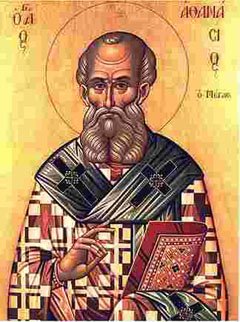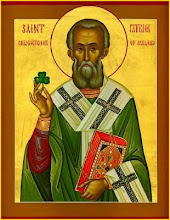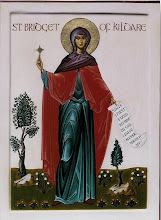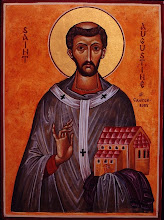Through my Baptist upbringing, I was taught that once a person was “saved” – in other words: once one had accepted Jesus Christ as Savior and Lord thereby beginning a personal relationship with Him – they would always be saved, no matter what, hence the mantra “once saved, always saved.” There are biblical references made in support of this doctrine, of course, just as there are those that support the differing view held by many that one can fall from their salvation. Calvin held that continued salvation was dependant on continued faith. Roman Catholic teaching, as far as I understand, holds that continued salvation depends upon continued good works.
What follows is not based on literal reading of the Holy Scripture. It is, however, based on interpretation of scripture and history as I have heard it.
In the days in which our Lord walked on Earth, it was the practice of shepherds in the Holy Land to bring their sheep into the sheepfold for the night. This enclosure lacked a door. The reason for this was because the shepherd, himself, would sit or lie down in that space and would function as the door. This served two purposes. The first was to keep out predators and thieves. The second was to keep the sheep within the fold.
In the Gospel according to St. John 10:14 (KJV), our Lord says, “I am the good shepherd, and know my sheep, and am known of mine.” If a shepherd, a mere man, make of himself a door to keep his sheep within the sheepfold, then doesn’t it stand to reason that our Lord, the Good Shepherd, would do the same for His sheep? Once He takes us into the fold, does He not make of Himself a door to keep the devil (thief) out and to keep us safely within? The second half of this verse doesn’t necessarily lend itself to this discussion, per se. However, when one looks at another…
In the Gospel according to St. Matthew 7:11 (KJV), our Lord says, “If ye then, being evil, know how to give good gifts unto your children, how much more shall you Father which is in heaven give good things to them that ask him?” By the same reasoning, if a shepherd, a mere man, will place himself in the doorway to keep his sheep inside the fold, safe from the thieves and predators, “how much more” shall the Good Shepherd, our Lord Jesus, keep us inside His fold and save us from the great thief?
Greater and more learned minds than mine have debated this question and come to differing conclusions. When I first quit running from the Holy Spirit, about one and one-half years ago, I began studying and attempting to justify the faith of my youth with actual scriptural truth. I started with an open mind, fully prepared to learn that I had been wrong for the greater part of my life. This is one of the issues with which I struggled, and I believe that this is the answer God wanted me to find.
Amen.
St. Michael the Archangel
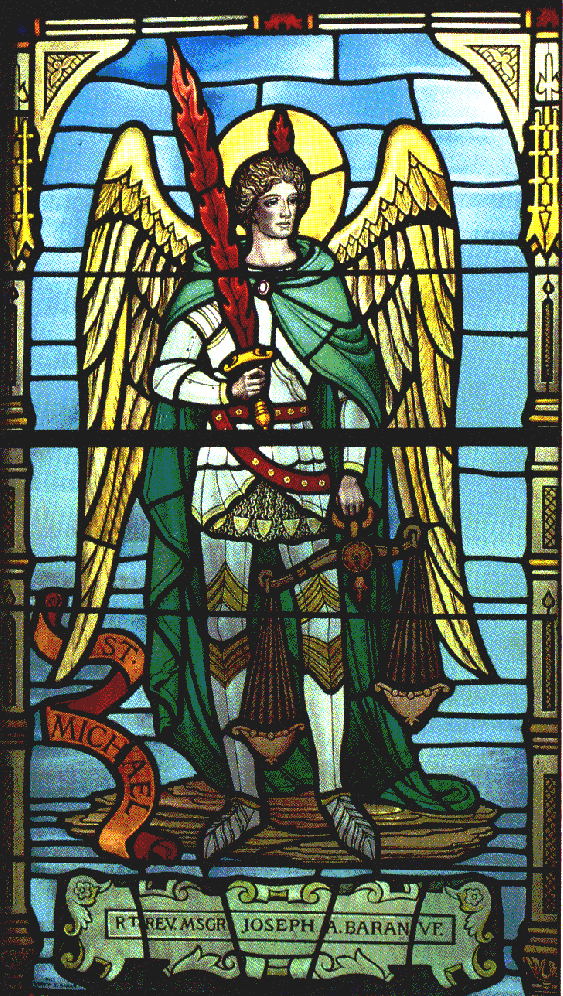
Patron Saint of Police Officers
Saturday, December 29, 2007
On Salvation, Part II
Posted by
Jerry S
at
9:28 AM
4
comments
![]()
Tuesday, December 25, 2007
Happy Christmas
I just wanted to share one of my favorite songs of the season. I have no commentary to add; I only hope you enjoy it as much as I do. Feel free to comment if you like.
Pax,
Jerry
<><
Posted by
Jerry S
at
2:51 AM
0
comments
![]()
Thursday, December 20, 2007
In This Storm
I don’t know who put this video together, but they did an excellent job. This has been one of my favorite songs for some time. It really speaks to me. We all have storms in life, times when things seem to be going terribly wrong. Not only can we not seem to get out of those times, we can’t see any end in sight. Reason fails us…our strength wanes. The lightning illuminates just enough to make things look worse than they really are, and the thunder mocks us and our inabilities. We are at the mercy of the wind and waves, or so it seems.
As with the apostles, caught in a storm on the Sea of Galilee, and the Master was asleep. They panicked, they fretted, they did everything in their power to save the boat and their lives with it. Finally, when they had lost all hope, they called on the Master in their darkest hour. I can almost hear Him now: ”O ye of little faith…did you honestly think I would let you come to harm? If only you had come to me first, you could have been spared from all of this worry and heartache.”
But that is the problem with us humans: we think we can do everything ourselves, or at least that we should be able to. Not until all seems lost do we go to the only One who can give us the strength, the grace to come through our storms. The sovereign God is in control. We have to trust that there is a purpose for the storms of our lives, that God is helping us to grow through them. Nothing can grow without the rain…no blade of steel can be made without first going through the fire. We are to praise Him in the storms of this life because it is through the rain that we grow…it is through the fires that we become strong.
Posted by
Jerry S
at
5:46 AM
0
comments
![]()
Tuesday, December 18, 2007
Examples
On an ordinary Sunday at the First (insert denominational preference here) Church, the congregation had just finished the last hymn before the sermon. The pastor stood behind the pulpit and prepared to speak. He welcomed everyone and invited them to open their Bibles to the passage from whence his message would come. It was at this time that a young man entered. He was wearing dingy and torn denims and a T-shirt depicting a rock band, and his hair was disheveled and in desperate need of cutting. The young man began to walk up the center aisle in search of a seat, much to the disapproval of the parishioners, who were whispering not-so-quietly their displeasure that such a specimen had trespassed on their new plush carpet to disrupt their worship. The pastor paused to allow the young man to find a seat, hoping that the congregation would then settle down enough to hear the sermon. The young man walked to all the way to the front pew, searching for a seat; however, there were none to be had. Without missing a beat, the visitor sat in the floor of the aisle, directly between the front two pews and crossed his legs, looking up expectantly at the pastor. Finally a deacon, quite possibly the oldest man in the building and one of the best dressed with his suit perfectly tailored and his hair and mustache perfectly trimmed, began to make his way from the rear toward the young man. The whispers changed from contempt to relief that something would finally be done to remove the vagabond. The old man marched directly to the visitor and, to the surprise of the crowd and the glee of the pastor, sat down on the floor beside the lad. With a tear in his eye, the pastor said, “Deacon Smith has just taught us, through his example, a better lesson that any I could have prepared for today.” The pastor lifted his sermon notes and tore them in half, and then he began speaking to his flock on the love of Christ.I heard this anecdote as part of a sermon some time ago, but I cannot remember from whom. For some reason it came back to me and I thought I would share it. We, as humans, tend to become a bit proud of our buildings and accoutrements. Sometimes we forget that our purpose as the Church is to take the love of Christ to others. God does not care that we cannot afford the finer things in life. In the grand scheme of things, the shabby state of our attire is of no matter because while we look without, He looks within.
Peace,
Jerry
<><
Posted by
Jerry S
at
11:48 AM
1 comments
![]()
Sunday, December 9, 2007
On Salvation
While browsing Vindicated: The Amazing Blog of Kyle Potter I found some comments concerning salvation. Specifically, a couple of comments to a post dealt with the question: “What is salvation?” Of course we all know that there are myriad ideas concerning this ever important concept. We have all heard the familiar slogans: sola fide, sola gratia, “no salvation outside the church”…just to name a few.
As I was raised as a Southern Baptist from childhood, let us first discuss the common Protestant Evangelical doctrine of salvation. St. Paul said that salvation was not due to our own works or merit, but by grace through faith [in Christ Jesus]. He also said that, in order that we could not boast on any level that we had any hand in our own salvation, that faith, which brings God’s grace to us, is a gift from Him. Let’s break this down a bit. Salvation (deliverance, rescue, recovery, escape) is a result of [undeserved] grace (kindness, favor, mercy, charity…) made possible by our faith (trust, reliance, belief, devotion, loyalty)[in Christ], which is given as a gift from God. Basically, it is all God’s doing. We cannot even boast that the required faith is of ourselves. So, if we can’t even be counted upon to provide faith for our own salvation, how can anything else we could possibly do contribute in any way toward our salvation? I am at a loss as to how that could be accomplished. Also, let me say that I agree with this, as far as it goes anyway.
Most Protestant Evangelicals stop just there. In fact, that is precisely where I stopped when I was approximately twelve years old. This is how it went for me: I was sitting in the pew in Sunday worship, listening to the pastor’s sermon. At the end of his sermon, just as every other sermon, there was an “altar call.” For those who have no idea what that means, in the church where I grew up, this meant that the piano and organ would play and the congregation would sing a hymn while the pastor pled with any and all for them to accept Jesus as Lord and Savior by reciting a prayer and walking forward to make a profession of faith. This particular Sunday, I felt more than heard that still, small voice calling me. I prayed that prayer, asked God to forgive me of my sins, and, with tears in my eyes, walked to where the pastor was standing just below the pulpit. There was the announcement that I had become a child of God, there was much shaking of hands, the proud parents were called to stand with me, and I was baptized in the name of the Holy Trinity by full emersion at the following Wednesday-night service. It was at this point, as stated earlier, that my growth in the kingdom of God ceased.
While I called myself a “born again Christian”, there was nothing in my life to show this. In answer to that famous question, there was not enough evidence in my life for a court to convict me of being a Christian. This brings me to another question: What does it mean to be “born again”? In the tradition of the church catholic, it is believed that one is born again at baptism. It is through this sacrament that grace is imputed to the baptized from the Holy Ghost. It symbolizes our identification with the death, burial, and resurrection of our Lord in that we die to sin, are “buried” under the water, and are raised up as new creatures in Christ. But what if there is more?
Our Lord said that if our righteousness is not greater than that of the Pharisees, we will not enter the kingdom of Heaven. What does that mean, considering that the Pharisees were known as the most righteous people on earth? It was their sole ambition in life to keep the Law perfectly…they were legalists. What’s more, their righteousness was not enough. How could one be more righteous than a person who lives a lifestyle of righteousness? Evangelical theologians have used this to support the idea of sola gratia, grace alone. If in order to be saved one must be more righteous than the most righteous people on earth, there is no way for any to be saved…except. Except that upon our acceptance of Christ as Savior and Lord, we receive and are covered by His righteousness. This is a grand thought, that He loves us so much that He, knowing that we cannot do it ourselves, does it for us. He knows that we do not have enough righteousness of our own, so He gives us His. But what if there is yet more?
What if the “our righteousness” means just that…not His righteousness? What if He meant that, after being born again, we receive the grace to have that righteousness? Or if you do not like that one, try this: The Pharisees’ righteousness was for their own sakes. While they may have begun with proper intentions, by the time of our Lord’s earthly ministry they did it for the recognition it brought them. What if God gives us the grace to seek righteousness for His sake? That would make our righteousness greater than the Pharisees’. Or would it? What if it is a combination of both?
We know that we are saved by grace and that works play no part in our salvation in that works do not save us. However, there is too much mention of works for there to be no connection. Our Lord said that those who love Him will keep His commandments. Love denotes faith, which would mean that faith requires action in keeping the commandments of Jesus. He said that he would separate the sheep from the goats according to their works. James (for our Roman Catholic friends) said that “faith without works is dead”. These are just a few of the references to the necessity of good works in relation to salvation. Are good works required for salvation? Not according to St. Paul, but St. Paul's writings agree with the others that they, good works, are required of the saved.
Finally, in case you are wondering after all of this questioning on my part, I am in total agreement with St. Paul. We are saved by grace through faith to do good works. As to the question of righteousness, I know without doubt that I am wholly incapable of righteousness without the grace of God. I believe that what makes our righteousness greater than that of the Pharisees is the fact that by the grace of God our quest for righteousness is for His sake and not our own, which makes us to strive for more. I believe that our good works are part of that righteousness, and that God works through our deeds to bring others to Himself. Do I think that these works, this “social gospel”, are a substitute for the True Gospel as some would have us believe? Heaven forbid! Lest we forget that one of the commandments of our Lord was to preach the Gospel. And as for my over use of the very Protestant term “acceptance”, I firmly believe that a conscious decision of acceptance must be made. Remember I said that faith requires action? Just as we are given the opportunity to decide not to accept the gift, we are required to decide to accept the gift if we are to see the kingdom of God. I found in my own experience that, just as I made that choice in the Baptist church of my youth, I choose everyday to follow the path set before me by our Lord. I choose to seek His face instead of the face of the world. I choose to strive for righteousness for His sake. I choose Him because He chose me. Amen.
Posted by
Jerry S
at
2:55 AM
1 comments
![]()
